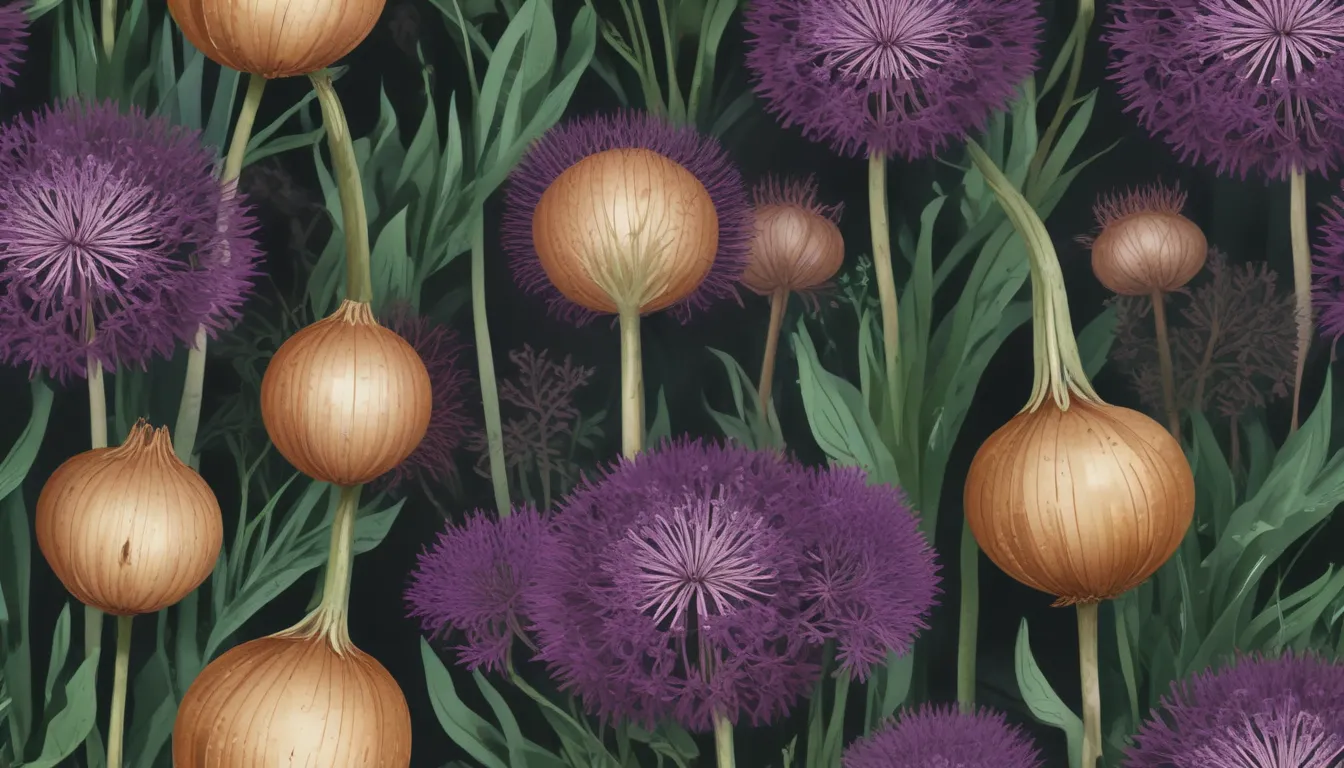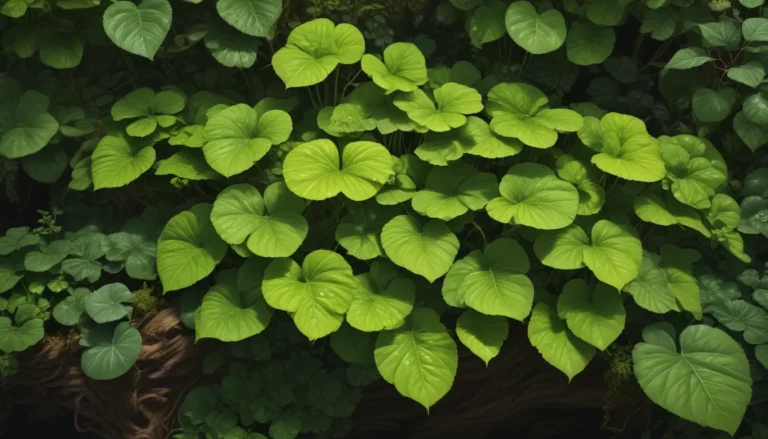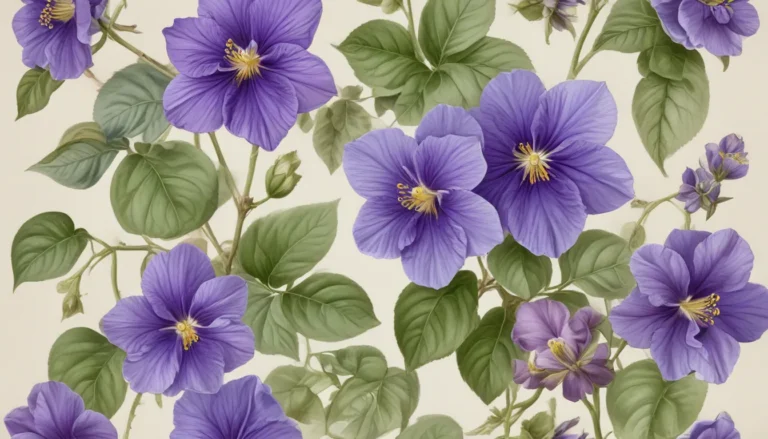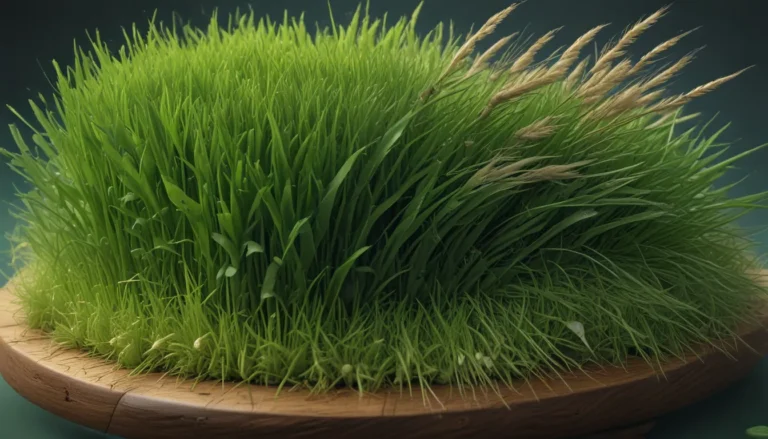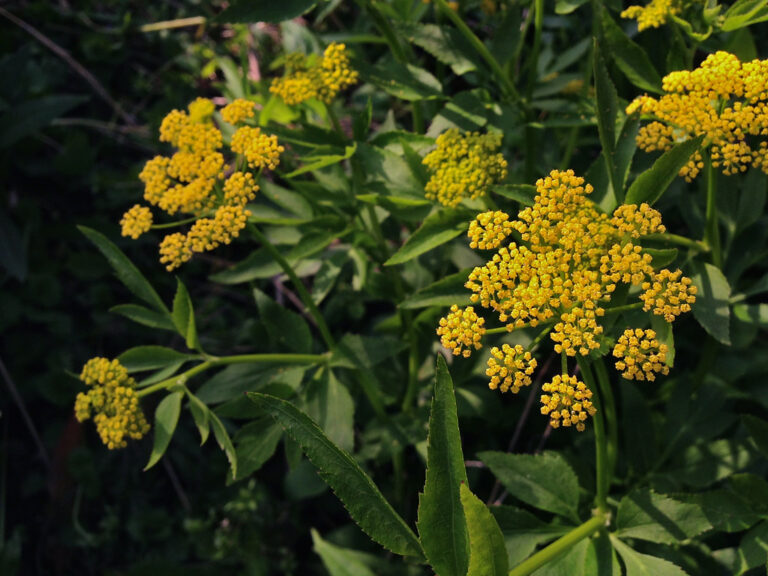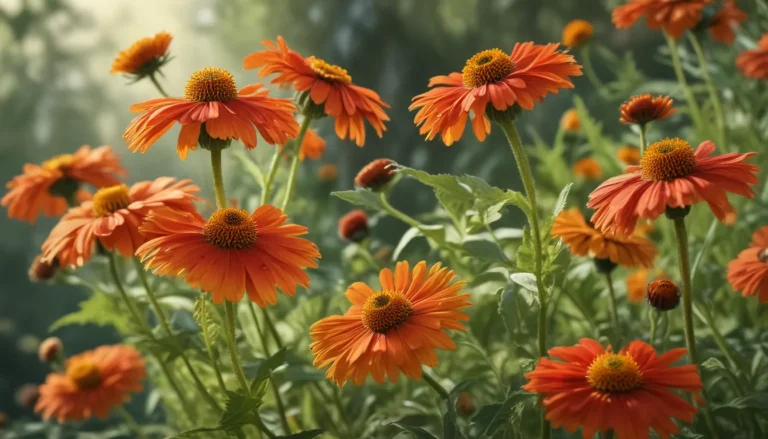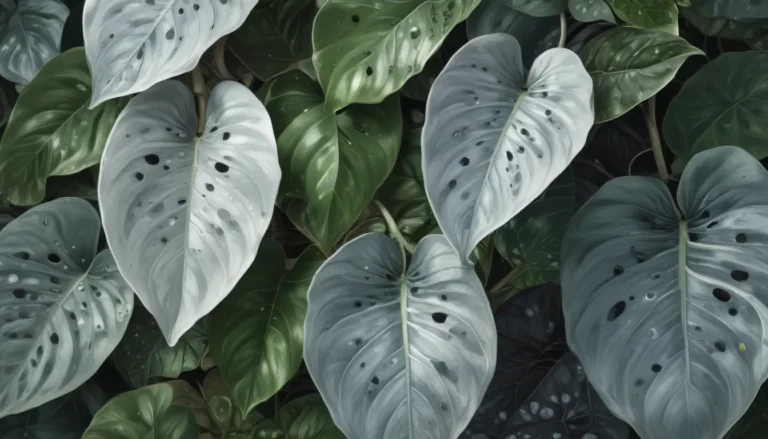The pictures we use in our articles might not show exactly what the words say. We choose these pictures to make you interested in reading more. The pictures work together with the words but don’t take their place. The words still tell you the important facts.
Are you ready to embark on a journey through the captivating world of Allium? Known for its culinary staples like onions, garlic, and chives, this diverse genus of plants offers so much more than meets the eye. From vibrant flower colors to medicinal benefits, Allium continues to amaze and inspire gardeners, botanists, and food enthusiasts alike. Join us as we unravel 14 incredible facts about Allium that will deepen your appreciation for these remarkable plants and spark your curiosity.
All About Allium
Allium: The Flowering Wonder
Allium, a captivating genus of plants belonging to the Amaryllidaceae family, encompasses a wide range of species, including familiar favorites like garlic, onions, and chives. Known for their pungent aroma and rich flavor, Allium plants are an essential ingredient in various culinary dishes, adding depth and complexity to flavors.
The Diverse World of Allium
With over 800 species to its name, Allium stands as one of the largest genera in the plant kingdom. From delicate blooms to showy flowers in a spectrum of colors, Allium offers a diverse array of options for garden enthusiasts, making it a versatile and valuable addition to any garden.
A Burst of Color: Allium Flowers
Allium flowers are renowned for their stunning and vibrant hues, ranging from deep purples and rich blues to bright pinks and sunny yellows. These captivating colors make Allium a popular choice for ornamental purposes, adding a pop of color and elegance to any garden space.
The Wonders of Allium
Allium: A Medicinal Marvel
Beyond its culinary uses, Allium has a long history of being utilized in traditional medicine for its various health benefits. Garlic, in particular, is renowned for its potent medicinal properties, including antibacterial, antifungal, and antiviral effects. Allium plants are also known for their antioxidant properties that can help boost the immune system.
Nature’s Pollinator Magnet
The striking flowers of Allium not only please the eye but also attract essential pollinators like bees, butterflies, and hummingbirds to the garden. By creating a pollinator-friendly environment, Allium contributes to biodiversity and supports the ecosystem in a beautiful and meaningful way.
Allium: A Symbolic Connection
In different cultures, Allium holds symbolic meanings that range from luck and protection to unity and resilience. Whether as a sign of good fortune or a representation of renewal, the symbolic interpretations of Allium flowers add a deeper layer of significance to their beauty and presence in gardens.
Allium in Everyday Life
The Culinary Delight of Allium
Humans have been incorporating Allium plants into their cooking for thousands of years, from ancient civilizations to modern-day culinary creations. From the robust flavor of garlic to the versatile uses of onions and leeks, Allium species play a crucial role in enhancing the taste and aroma of dishes worldwide.
Savoring Allium Flowers
While Allium bulbs and leaves are commonly consumed, some Allium flowers are also edible, adding a decorative and flavorful touch to salads and other dishes. Flowers of species like chives and garlic chives serve as both a garnish and a burst of flavor, showcasing the versatility of Allium in culinary settings.
The Aromatic Allure of Allium
The strong odor of Allium is unmistakable, with the pungent scent of garlic and the sharp aroma of onions defining these plants. The presence of sulfur compounds in Allium tissues is responsible for their potent and sometimes overpowering smell, making them a distinctive addition to gardens and kitchens.
Cultivating Allium
The Low-Maintenance Marvel
For those seeking an easy-to-grow plant, Allium is a fantastic choice. Most species of Allium are low-maintenance and require minimal care, thriving in well-draining soil and full sun conditions. Whether you're a beginner gardener or simply short on time, Allium is a reliable and rewarding addition to any garden.
Allium as Natural Pest Control
Did you know that certain Allium species, such as chives and garlic, can act as natural pesticides? Their sulfur compounds repel pests like aphids, slugs, and nematodes, offering a chemical-free way to protect your garden plants from unwanted visitors. By planting Allium, you can promote a healthy and pest-resistant environment in your garden.
Nutrient-Rich Allium
Not only are Allium plants flavorful, but they also pack a nutritional punch. Garlic, for example, is rich in vitamins C and B6, along with essential minerals like manganese and selenium. Onions are high in vitamin C and dietary fiber, making Allium a valuable source of nutrients for a well-rounded diet.
Embracing the Versatility of Allium
A Plant of Many Talents
From culinary uses to medicinal applications, ornamental gardening, and natural pest control, Allium showcases remarkable versatility in various aspects of life. Its ability to serve multiple purposes, from flavoring dishes to enhancing garden aesthetics and promoting plant health, makes Allium a favorite among gardeners, chefs, and herbalists worldwide.
The Incredible Allium Legacy
In conclusion, Allium plants stand as truly incredible and fascinating additions to our world. With their diverse species, numerous health benefits, and culinary versatility, Alliums have earned their place as powerhouse plants that cater to both our senses and our well-being. Whether you're admiring the beauty of a giant Allium flower or savoring the flavors of garlic and onions, the allure of Allium is undeniable.
Frequently Asked Questions
- What are some popular varieties of Alliums?
-
Popular Allium varieties include Allium giganteum, chives, onion, garlic, and Allium aflatunense.
-
Are Alliums easy to grow?
-
Yes, Alliums are generally easy to grow, preferring well-draining soil and full sun exposure.
-
Can Alliums be grown in containers?
-
Yes, Alliums can thrive in containers, provided they have adequate space for their root growth.
-
Are Alliums deer-resistant?
-
Alliums are considered deer-resistant due to their strong odor, though local deer behaviors may vary.
-
Do Alliums offer health benefits?
-
Yes, Alliums contain antioxidants and sulfur compounds that contribute to heart health, immune system support, and antibacterial properties.
-
Can Alliums be used in cooking?
-
Absolutely! Alliums are commonly used in cooking, adding distinctive flavors and aromas to a wide range of dishes.
-
How should Allium bulbs be stored?
-
Allium bulbs should be stored in a cool, dry place with good airflow until they are ready to be planted.
-
When is the best time to plant Allium bulbs?
- Allium bulbs should be planted in the fall, approximately 2-4 weeks before the ground freezes, to ensure proper root establishment.
Exploring the World of Allium
As you journey through the fascinating realm of Allium, may you be inspired by the beauty, versatility, and richness that these plants offer. Whether you're a seasoned gardener, a culinary enthusiast, or a nature lover, Allium has something to captivate and delight you. With its vibrant colors, health benefits, and practical uses, Allium truly stands out as a remarkable and essential addition to our lives. So, embrace the wonders of Allium, and allow its mystical allure to enhance your world in ways both practical and profound.
